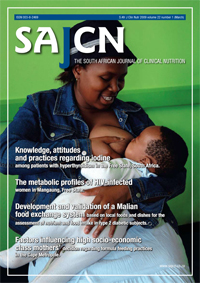Promotion, protection and support of exclusive breastfeeding (EBF) – how to move a normative behaviour into a reality?
Keywords:
breastfeeding
Abstract
The benefits of breastfeeding for both the newborn and the mother have been well documented over centuries.1,2 Starting with the neonate it has been established that breastfeeding within the first hour of birth can avert 22 percent of infant deaths.3 More recently, the literature has focused on the pivotal role of breastfeeding especially for children under 2 years of age on child survival and its potential in preventing up to 1.4 million deaths among children below the age of five years.1,4,5. EBF practices are equally beneficial in poorly resourced as well as affluent communities. With regard to the latter, the UK Millennium Cohort Study documented that six months of EBF resulted in a 53% reduction in hospital admissions attributable to diarrhoea and a 27% decline in respiratory infections.6 Within the context of developing countries, where the disease burden is accentuated by pandemics such as HIV and AIDS and limited access to clean water and sanitation, early and immediate EBF, and continued breastfeeding beyond 6 months, is the optimal nutrition for children.
Published
2009-03-17
How to Cite
Matji, J. (2009). Promotion, protection and support of exclusive breastfeeding (EBF) – how to move a normative behaviour into a reality?. South African Journal of Clinical Nutrition, 22(1). Retrieved from http://sajcn.redbricklibrary.com/index.php/SAJCN/article/view/313
Issue
Section
Editorials, Opinions, Issues in the field of Nutrition
Material submitted for publication in the South African Journal of Clinical Nutrition (SAJCN) is accepted provided it has not been published elsewhere. Copyright forms will be sent with acknowledgement of receipt and the SAJCN reserves copyright of the material published.
The SAJCN does not hold itself responsible for statements made by the authors.


